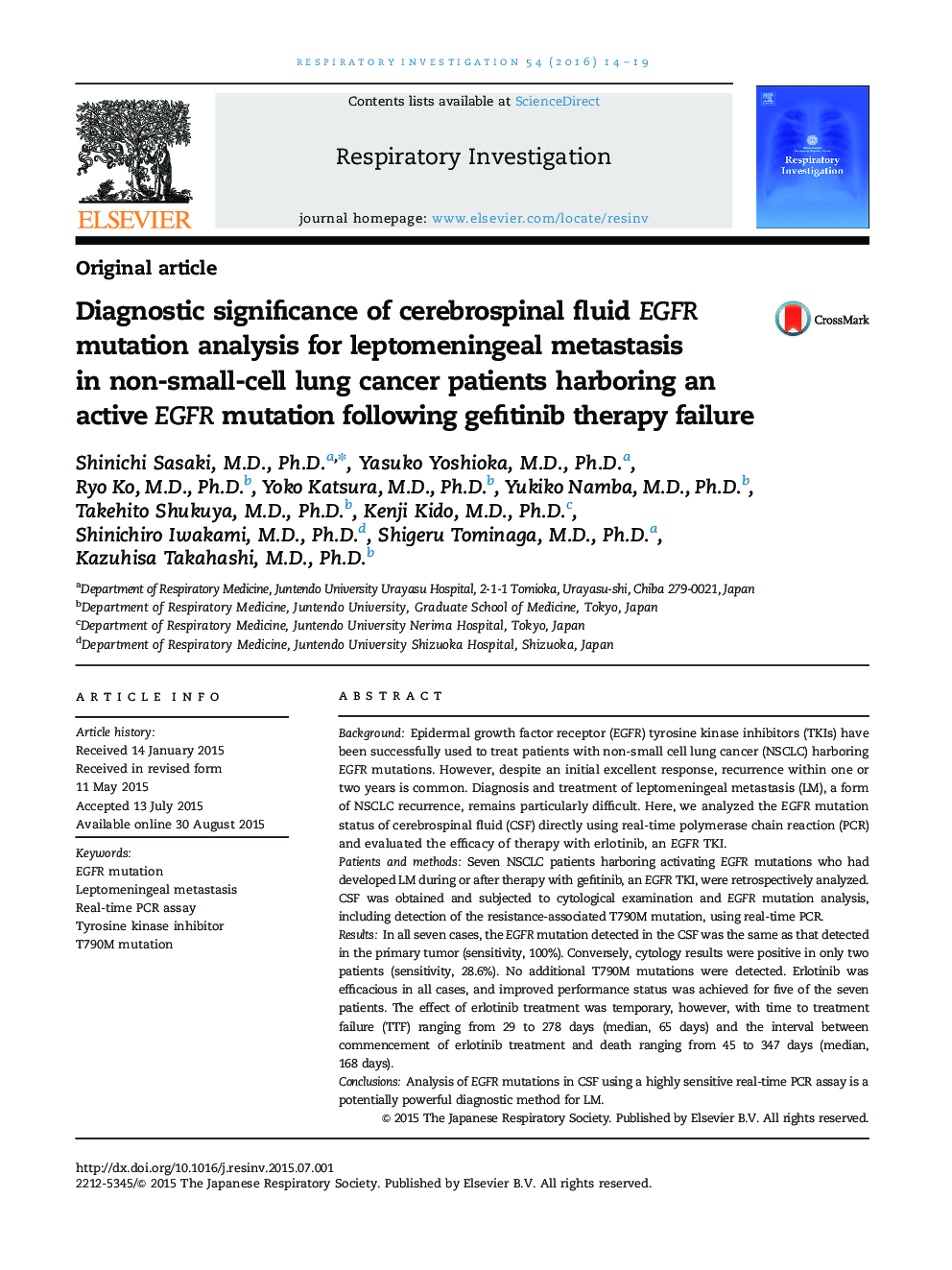| کد مقاله | کد نشریه | سال انتشار | مقاله انگلیسی | نسخه تمام متن |
|---|---|---|---|---|
| 3418624 | 1225750 | 2016 | 6 صفحه PDF | دانلود رایگان |
BackgroundEpidermal growth factor receptor (EGFR) tyrosine kinase inhibitors (TKIs) have been successfully used to treat patients with non-small cell lung cancer (NSCLC) harboring EGFR mutations. However, despite an initial excellent response, recurrence within one or two years is common. Diagnosis and treatment of leptomeningeal metastasis (LM), a form of NSCLC recurrence, remains particularly difficult. Here, we analyzed the EGFR mutation status of cerebrospinal fluid (CSF) directly using real-time polymerase chain reaction (PCR) and evaluated the efficacy of therapy with erlotinib, an EGFR TKI.Patients and methodsSeven NSCLC patients harboring activating EGFR mutations who had developed LM during or after therapy with gefitinib, an EGFR TKI, were retrospectively analyzed. CSF was obtained and subjected to cytological examination and EGFR mutation analysis, including detection of the resistance-associated T790M mutation, using real-time PCR.ResultsIn all seven cases, the EGFR mutation detected in the CSF was the same as that detected in the primary tumor (sensitivity, 100%). Conversely, cytology results were positive in only two patients (sensitivity, 28.6%). No additional T790M mutations were detected. Erlotinib was efficacious in all cases, and improved performance status was achieved for five of the seven patients. The effect of erlotinib treatment was temporary, however, with time to treatment failure (TTF) ranging from 29 to 278 days (median, 65 days) and the interval between commencement of erlotinib treatment and death ranging from 45 to 347 days (median, 168 days).ConclusionsAnalysis of EGFR mutations in CSF using a highly sensitive real-time PCR assay is a potentially powerful diagnostic method for LM.
Journal: Respiratory Investigation - Volume 54, Issue 1, January 2016, Pages 14–19
